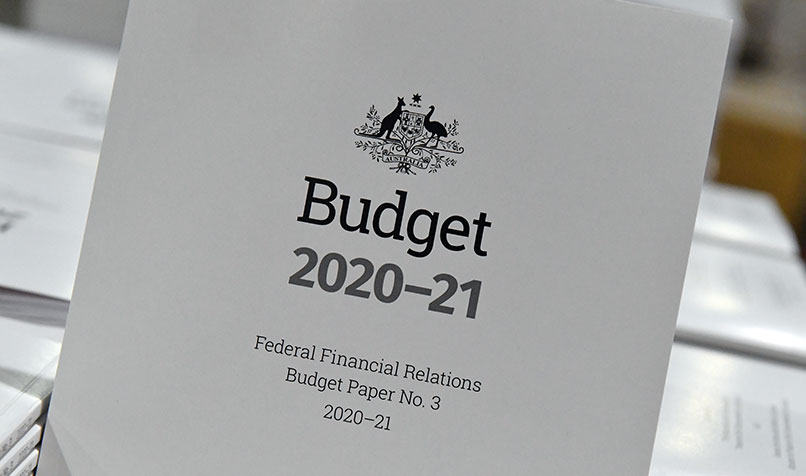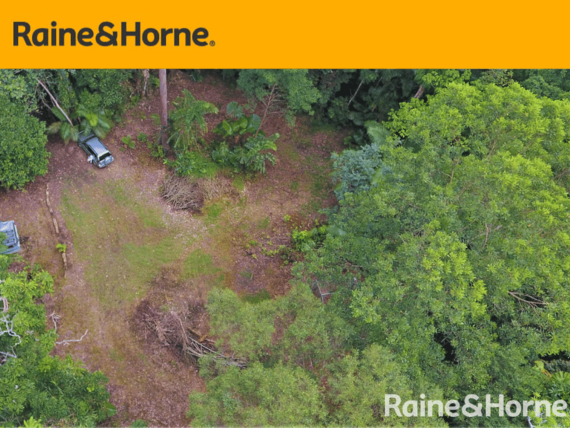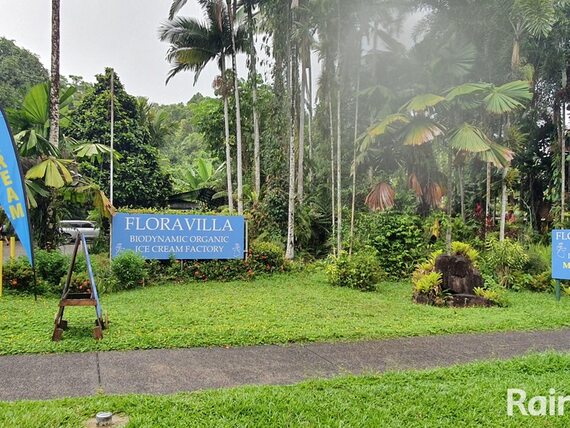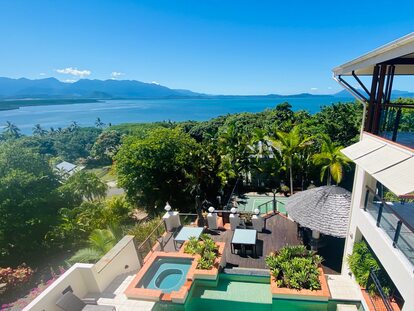OPINION | Brainless Budget fails on population, tax
OPINION

The 2021 Budget has been called the recovery budget, responsible, irresponsible, fair, unfair, cautious and reckless. But it has not been called what it should be: “brainless”. This is a really frustratingly dumb Budget on several counts: population, housing, tax, energy, and childcare.
Population.
The gigabytes of comment and information in and about the Budget hardly mention the elephant no longer in the room: high population growth.
The Budget figures show that, in the pandemic-affected financial years (2019-20 to 2021-22) net migration is in total 661,000 people fewer than it would have been under business as usual.
The Government is patting itself on the back for the marvellous V-shaped economic recovery and bounce back and giving every reason but the real one. Australia is doing far better than all the economists, business, Treasury and Reserve Bank people imagined because of dramatically lower population growth caused by dramatically lower immigration.
This cabal of misguided economists are the people who for decades have banged on about immigration being essential to Australian economic growth and prosperity.
Poppycock. The cabal predicted the pandemic would bring economic collapse and massive dole queues. But with 661,000 fewer people (and their offspring) to cater for we have done much better than they thought.
In particular, we have about 200,000 more jobs than we had pre-pandemic. If we had had immigration as usual, those jobs would have gone to immigrants and the dole queue would have been 200,000 higher. Instead, the 200,000 people are tax-paying workers.
Plus closed borders meant our tourism deficit turned positive as people spent at home.
Small wonder the Budget deficit is much lower than the economic cabal predicted. The cabal believed its own propaganda that high population growth meant high economic growth and higher prosperity. Wrong. Per capita the growth was tiny or negative and the population growth caused a great burden in unmeasured things like congestion and the environment.
They were so blinded by the immigration-growth mantra that nearly all of their forecasts were wrong. They failed to see that without the usual massive immigration, unemployed locals would take up the slack.
Yet here they were in the past week, the same old heads from the economic cabal shamelessly popping up urging a return to what surely should now be a discredited population-growth mantra.
The firm message of this pandemic, bolstered by all the figures in the Budget, is that high immigration is bad for Australia, economically, environmentally and socially.
Notice how the Government is now turning its attention to local training. Business always demands government give it a freebie. If in a pandemic, government cannot give it cheap imported labour then it must pay for local training.
In the past, Governments have provided business with a pool of cheap imported labour to suppress wages and to hell with the broader costs. The pandemic employment igures prove that training people here is more economically sound.
But what does this Budget do? Project a return to high immigration as soon as the pandemic is over.
Moreover, why can’t the economic rationalists who call for user pays for every other government service apply the same reasoning to immigration. If a business desperately needs someone with skills that they say (usually incorrectly) are not available in Australia, they should pay the cost.
Average wealth in Australia is a little under $400,000 per head. Very few migrants bring that amount in. To the extent they don’t they lower the average wealth of the people here. The businesses that want them should pay the balance as a user-pays tax. They would soon learn that it is better to train locally.
Without the 661,000 extra people, we have not had to build what amounts to a quite large city. The only people who would have benefited were the property developers and the big retailers and big business generally. The cost would have been borne by the environment and the existing population (including migrants and indigenous people) with congestion, higher housing costs and education and health stress.
Post pandemic we should put an end to this migrant-led growth mantra, but the Budget suggests we won’t.
Housing.
Treasurer Frydenberg thought that by handing out some goodies to first-home buyers, he would make it easier for them to buy their dream home. But, in fact, he has made it harder. The Budget has added another jerrycan of fuel to the housing market.
The only way to make housing more “affordable” for home-buyers is to reduce prices by reducing the demand driven by investors.
The easiest way would be to remove the big tax breaks for investors: negative gearing and capital gains tax concessions. But if this is too hard politically the government could increase the interest rates for housing investors by imposing a (say) 2 percentage point tax on housing investment mortgages.
That would leave general interest rates low for business, as is needed, and make home-buyers more competitive with investors.
Tax.
More tax concessions for superannuation? Please. Tax cuts for the rich? Oh no. What about a quick intelligent simplification of the tax system by giving everyone a $3000 deduction, beyond which the taxpayer would have to prove and detail their deductions? At a stroke millions of people would be freed of the burden of doing income-tax returns and the ATO would be freed of the burden of processing them.
The ATO could then get on with the important work against high-income tax dodging.
Energy.
The Budget gives $30 billion a year in tax subsidies to the fossil-fuel industry. It is going to squander $500 million on madcap carbon capture and hydrogen hubs near coal and gas. Spare us the wasteful idiocy.
Childcare.
When will the government the economic and social value in giving free childcare and early childhood learning to all?
The brainlessness does not end there, but I have run out of space.
--------
Crispin Hull is a current columnist and the former Editor of the Canberra Times.
Got a news tip? Let us know! Send your news tips or submit a letter to the editor here.
* Comments are the opinions of readers and do not represent the views of Newsport, its staff or affiliates. Reader comments on Newsport are moderated before publication to promote valuable, civil, and healthy community debate. Visit our comment guidelines if your comment has not been approved for publication.


















